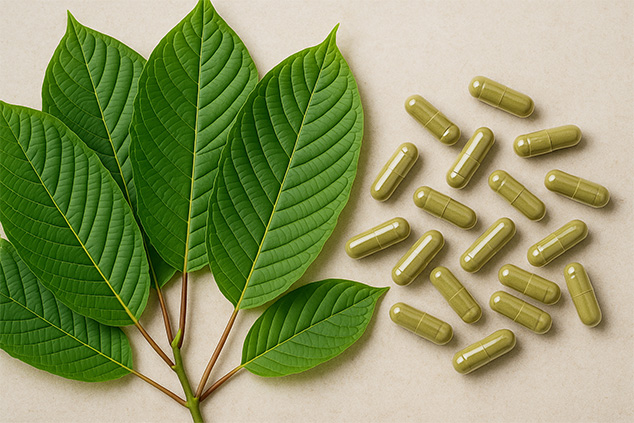For a very long time, humanity viewed our gut simply as a part of our bodies responsible for processing food and eliminating the waste that’s left behind. Yet, an increasing number of scientific studies reveal that our gut is more than just a poop producing mechanism.
Our gut has its own little world inside it, called the microbiota. Formerly known as gut flora, it contains tens of trillions of different microorganisms. That’s about ten times more than the cells that our bodies have.
Our microbiota is so important to our health and wellbeing that it can affect the way we feel, both physically and emotionally. This is why a large number of scientists refer to the gut as our second brain.
Because the gut has such a large impact on our general health and wellbeing, gut issues can be more serious than it may appear on the surface.
One of these gut issues is IBS or irritable bowel syndrome.
What is IBS (Irritable Bowel Syndrome?)
IBS, also called irritable bowel syndrome or spastic colon, is a common gastrointestinal disorder that affects the large intestine. It’s a chronic condition that affects around 25-45 million of Americans, 2 out of 3 of them being women.
IBS is a functional condition. This means that there is nothing wrong with the gut or its structure, but rather the way it works. Guts affected by IBS are more sensitive than usual, and muscular contractions within the intestines do not work as effectively as they should.
While symptoms may vary, most common irritable bowel symptoms include:
- Abdominal pain and cramps
- Excess gas and bloating
- Food intolerances
IBS symptoms get relieved when a person passes a bowel movement, but not always. Frequently the relief is only partial.
The exact cause of this unpleasant and painful condition is currently unknown, though scientists speculate that it can be a combination of factors such as:
- Inflammation of the intestine
- Abnormal muscle contractions in the intestine
- Abnormalities in how nerves in the gut work
- A severe infection
- Changes in the gut microflora, the good bacteria in the gut
There are periods when symptoms can get worse or better or even disappear entirely. Moreover, factors such as stress, hormonal imbalances, or food can trigger IBS symptoms.
Some people experience IBS with diarrhea, while others have IBS with constipation. However, some people experience alternating diarrhea and constipation.
While IBS is not life-threatening, it can drastically decrease one’s quality of life. In severe instances, it can prevent people from leading their regular lives, such as work, or leave the house for long periods of time. What can make it even worse is doctors dismissing it and calling IBS symptoms psychosomatic.
Common Treatment for IBS
Since the exact cause of irritable bowel syndrome is not yet known, there is no definite cure for it. Most treatment methods focus on relieving the symptoms to improve a person’s quality of life.
Common IBS treatment methods include:
- Lifestyle changes such as regular exercise and more sleep
- Diet changes like drinking more fluids, eating more fiber-rich foods.
- Avoiding trigger foods, gluten, dairy, and high-gas foods like carbonated beverages, coffee, alcohol, and raw fruit.
- Pain medication.
- Fiber supplements.
- Laxatives or anti-diuretic medication
- Anti-depressants
- Alternative stress management techniques like yoga and meditation
There are also a number of medications specifically designed for IBS patients that doctors can prescribe in more severe instances.
Can Kratom Help with IBS?
While it’s not the effect that you may primarily think of, a number of people experience a pleasant side effect of taking kratom – their IBS symptoms disappear or are considerably improved.
Here are a few ways in which kratom for IBS can help:
- Bulk up the stool and help with diarrhea,
- Relieve cramps and abdominal pain
- Relieve stress and anxiety that may trigger IBS
- Improve depression symptoms and the mood
- Help you relax and improve the quality of sleep
- Boost energy and skip coffee or caffeinated beverages
- Help manage appetite and avoid unhealthy meals or snacks

What Kratom Strains Are Best for IBS?
Not all IBS instances are the same. Therefore, what you may need may differ from what someone else may benefit from. Since everyone’s body interacts with kratom differently, there may also be people who do not feel any improvement.
Because of that, evaluate your symptoms and select strains of kratom for IBS symptoms that affect you. Be ready to go through some trial and error while determining the strains that work best for you.
Let’s take a closer look at a few types of kratom for different IBS symptoms:
- Red or green vein kratom for IBS pain: Strains like Red Bali or Red Borneo will provide the most potent pain relief. However, they are also sedating and relaxing. Therefore, they are best to take in the late afternoon and the evening. Green vein strains like Green Malay and Green Maeng Da will be more suitable for the daytime. They will provide mild pain relief, but will not make you sleepy.
- Green vein kratom for energy and clarity of mind: If coffee irritates your stomach, green vein kratom strains can help you have more energy as well as have more clarity of mind. Green kratom can improve focus, helping manage negative or intrusive thoughts. This can help relieve anxiety if that affects you. White kratom strains are the most effective in terms of providing energy, yet you may find them too agitating or irritating. Some people with depression, stress, and anxiety can feel their symptoms worsen.
- Green or red vein kratom for stress and anxiety relief: Green strains are best taken during the day when you need more energy, whereas reds are best for the nighttime.
- Kratom for sleep. Red vein kratom can help you relax and wind down in the evening. Red strains like Red Bali are long-lasting. This can help you fall as well as stay asleep. Faster strains like greens or whites can help you establish a better routine and, by keeping you active and alert, ensure that you are tired when it’s time to go to sleep.
- Green vein kratom for IBS and depression: While kratom will not cure depression, it can make you feel better and have a more optimistic outlook on life, helping you get through your day.
Final Words about Kratom for IBS
Some people report feeling better if they take lower doses of kratom for IBS. That’s because a high intake of kratom can cause kratom constipation if you do not consume plenty of liquids and fiber. Depending on the type of IBS, you may benefit more from green vein kratom for IBS. Greens are taken in lower doses than reds and can be better if constipation bothers you.
Have you taken kratom for IBS? How has it helped you? What strains have you found to be the most helpful for this condition?



Leave a Reply